When it comes to enhancing your garden or outdoor space, installing a gazebo is a popular choice among homeowners. Not only does it boost the aesthetics of your garden, but it also provides a shaded retreat where you can relax or entertain guests.
However, selecting the right type of gazebo—hardtop or soft top—requires careful consideration. This article will delve into the differences, benefits, and drawbacks of both types to help you make an informed decision.
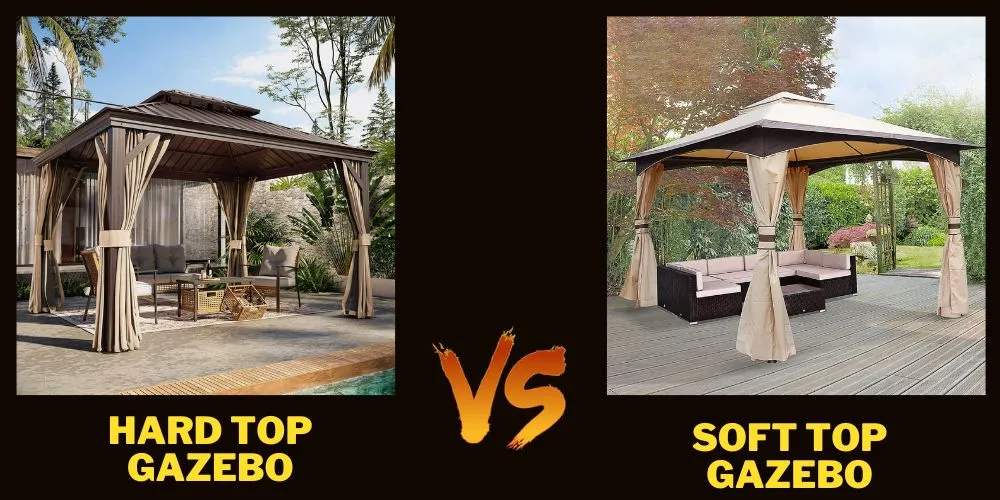
Contents
Explanation of Hardtop and Soft Top Gazebos
A hardtop gazebo comes with a solid roof made of materials such as metal, polycarbonate, or wood. It is designed to be a semi-permanent or permanent structure in your garden.
On the other hand, a soft top gazebo features a canvas or fabric roof that can be either temporary or semi-permanent, depending on the design and materials used.
Hardtop vs Soft Top Gazebo Detailed Comparison
Hardtop gazebos win in terms of durability. They are built to withstand harsh weather conditions—be it heavy rain, snowfall, or intense sunlight.
Soft top gazebos, though resilient to some extent, might not hold up as well against severe weather.
Cost
When it comes to cost, soft top gazebos are generally more affordable than their hardtop counterparts. The difference in price can be attributed to the materials used and the durability offered by each type.
Maintenance
Hardtop gazebos require less frequent maintenance since they are constructed from sturdier materials. For soft top gazebos, the fabric roof may need to be cleaned more often and possibly replaced every few years due to wear and tear or weather damage.
Installation
Both hardtop and soft top gazebos present their challenges during installation. Hardtop versions may require more hands or even professional help due to the weight and complexity.
Soft tops, though lighter and easier to handle, still necessitate a careful installation process to ensure stability and longevity.
Portability
If you’re looking for a gazebo that can move around or come with you in case of relocation, soft top gazebos are a clear choice. They are significantly lighter and easier to dismantle and reassemble than hardtop gazebos.
Appearance
The appearance is subjective and depends on personal preference and the surrounding landscape. Hardtop gazebos often offer a more permanent, refined look. Conversely, soft top gazebos can bring a casual or romantic feel to your outdoor space.
Weather Resistance
Given their solid construction, hardtop gazebos offer superior protection against the elements, including UV rays, rain, and snow. While soft top gazebos can provide shade and some level of protection, they might not be as reliable in severe weather.
Pros and Cons
Understanding the advantages and disadvantages of each type can be crucial in your decision-making process.
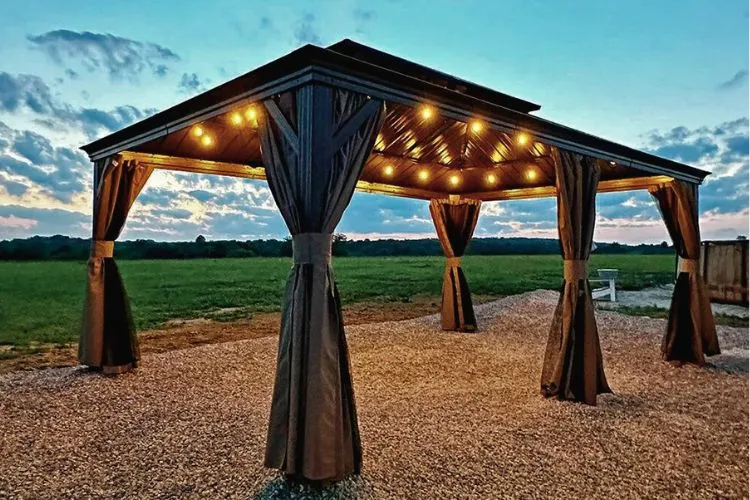
Hardtop Gazebos
Advantage
✅ Enhanced durability and longevity
✅ Superior protection against harsh weather
✅ Low maintenance
Disadvantage
❌ Higher initial cost
❌ More complex installation
❌ Less flexibility to move
Soft Top Gazebos
Advantage
✅ More affordable option
✅ Easier to assemble and disassemble
✅ Lightweight and more portable
Disadvantage
❌ More susceptible to weather damage
❌ May require more maintenance
❌ Generally shorter lifespan
Impact on Property Value
When considering the addition of a gazebo to your outdoor space, it’s worth contemplating not just the immediate benefits of comfort and aesthetics but also the potential impact on your property’s market value and appeal.
Both hardtop and soft top gazebos can significantly enhance the functionality and attractiveness of a garden or yard, yet their contributions to property value and buyer appeal can vary.
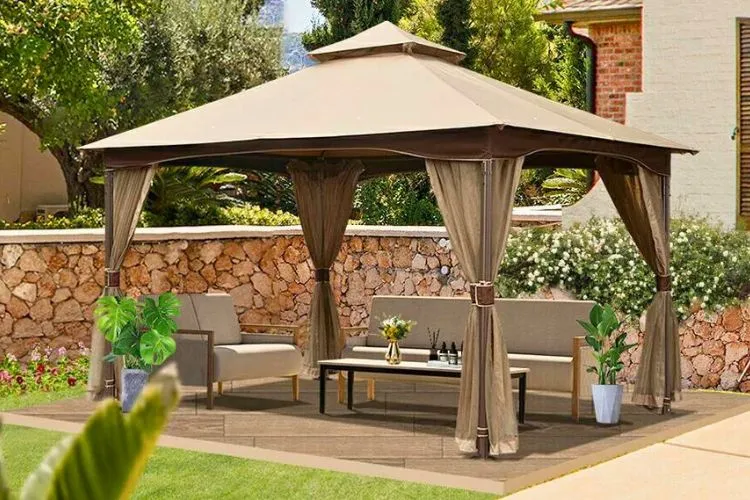
Hardtop Gazebos: Added Value and Permanence
Hardtop gazebos are typically seen as a substantial investment into the property. Constructed with durable materials such as metal, polycarbonate, or wood, these structures are designed to withstand the elements and provide year-round enjoyment.
Due to their permanence and robustness, hardtop gazebos can indeed add to the property value, making them an attractive feature for potential buyers.
The perceived increase in value comes from several factors:
- Durability and Longevity: A well-constructed hardtop gazebo can last for decades with minimal maintenance, reducing future costs for homeowners.
- Year-Round Utility: In climates where weather can be a deterrent to outdoor activities, a hardtop gazebo can offer a protected space to enjoy the garden any time of the year.
- Aesthetic Appeal: These structures often serve as a focal point in garden design, contributing significantly to the overall landscape’s aesthetic. Custom options allow for integration into a variety of garden styles, from traditional to contemporary.
- Functional Space Expansion: Essentially, a hardtop gazebo acts as an additional living space, perfect for dining, entertaining, or relaxing. This functionality is highly appealing in the current real estate market, where usable outdoor space is at a premium.
In summary, hardtop gazebos are frequently viewed by prospective homebuyers as a luxury feature that enhances both the utility and visual appeal of an outdoor area, potentially leading to a higher selling price or faster sale.
Soft Top Gazebos: Flexibility for Future Owners
Soft top gazebos, on the other hand, provide a different set of benefits that can also appeal to potential buyers, albeit in a less permanent way. Made with lighter materials and often designed to be movable, these gazebos offer flexibility and adaptability.
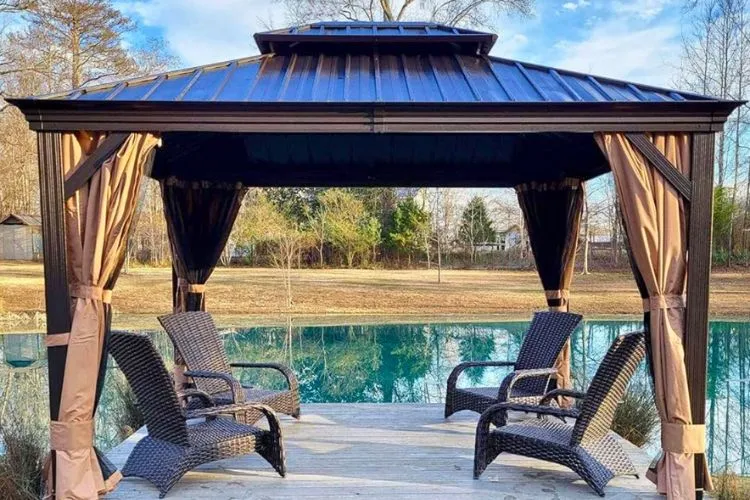
While they might not contribute to property value in the same tangible manner as hardtop gazebos, they offer other appealing features:
- Adaptability: Their temporary nature means homeowners can change the layout of their outdoor space as needed, accommodating evolving landscaping designs or functional requirements.
- Cost-Effectiveness: Being more affordable, soft top gazebos allow for the enhancement of outdoor living spaces without a significant upfront investment. This can be particularly appealing to homeowners planning to sell in the short term, offering a quick aesthetic boost.
- Seasonal Use: Ideal for use during milder weather, they can be packed away to avoid damage in the winter, extending their lifespan and reducing maintenance requirements.
- Quick Installation: The relatively simple setup process of soft top gazebos can appeal to homeowners looking for a quick improvement to their outdoor space’s usability and appearance.
While soft top gazebos may not directly increase a property’s sale price, they enhance the outdoor living experience, which is a significant selling point.
They indicate a well-maintained and flexible space, potentially making the property more attractive to buyers who value outdoor recreational areas but are wary of the commitment and maintenance a hardtop structure entails.
In the context of enhancing property value and appeal, choosing between a hardtop and soft top gazebo depends on homeowners’ priorities—whether they desire a long-term investment that adds to the property’s market value or seek flexibility and cost-effectiveness without significantly altering the home’s value.
While hardtop gazebos offer durability and a permanent enhancement to property appeal, soft top gazebos provide versatility and an attractive option for enhancing outdoor living spaces in a less permanent, more budget-friendly manner.
Ultimately, the decision should align with the homeowner’s lifestyle, budget, and future plans for their property.
Situational Preference
The choice between a hardtop and a soft top gazebo often depends on specific situations and preferences.
Choose a hardtop gazebo if:
- Your area experiences severe weather conditions.
- You desire a permanent fixture in your garden.
- You’re looking for a long-lasting, low-maintenance solution.
Opt for a soft top gazebo if:
- You seek a more budget-friendly option.
- Portability is a key concern for you.
- You enjoy changing the look of your outdoor space frequently.
Frequently Asked Questions (FAQs)
What is a hardtop gazebo?
A hardtop gazebo refers to a gazebo with a solid roof constructed from materials like metal, polycarbonate, or wood, designed for durability and permanence.
What are the key differences between hardtop and soft top gazebos?
The key differences lie in durability, cost, weather resistance, installation complexity, and overall appearance, with hardtop gazebos being more durable but often more expensive and complex to install compared to their soft top counterparts.
Is a hardtop gazebo better than a soft top gazebo?
The term “better” is subjective and depends on individual needs. Hardtop gazebos are superior in terms of durability and weather resistance, whereas soft top gazebos offer affordability and flexibility.
Does a hardtop gazebo require more maintenance than a soft top gazebo?
Typically, hardtop gazebos require less maintenance due to their durable materials, whereas soft top gazebos may need regular cleaning and occasional fabric replacement.
Are soft top gazebos more portable than hardtop gazebos?
Yes, soft top gazebos are generally lighter and easier to disassemble, making them a more portable option compared to hardtop gazebos.
Conclusion:
By comparing hardtop and soft top gazebos across various factors such as durability, cost, maintenance, and weather resistance, you can better understand which option aligns with your needs, preference, and the specifics of your outdoor space.
While hardtop gazebos offer robustness and permanence, soft top gazebos provide flexibility and affordability. Assessing the advantages and disadvantages of each, along with considering your situational needs, will lead you to the right choice for your garden sanctuary.
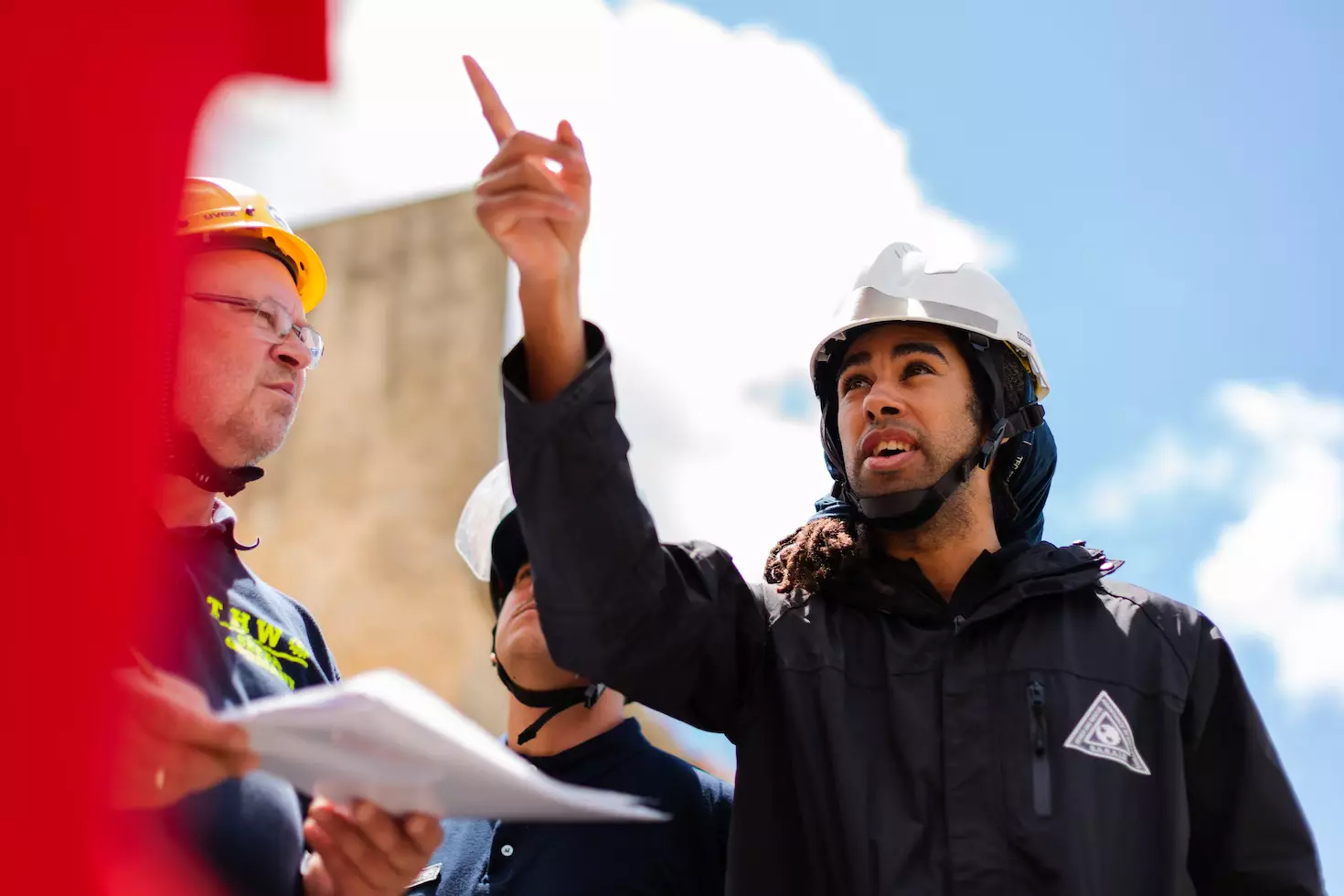
Sergio Gomes, a passionate advocate for outdoor living and the male voice behind Shades Authority. With years of experience, Sergio is your trusted source for expert insights on gazebos, pavilions, cabanas, pergolas, and all things outdoor shade solutions. Join him on a journey to transform your outdoor spaces into stunning, functional retreats
